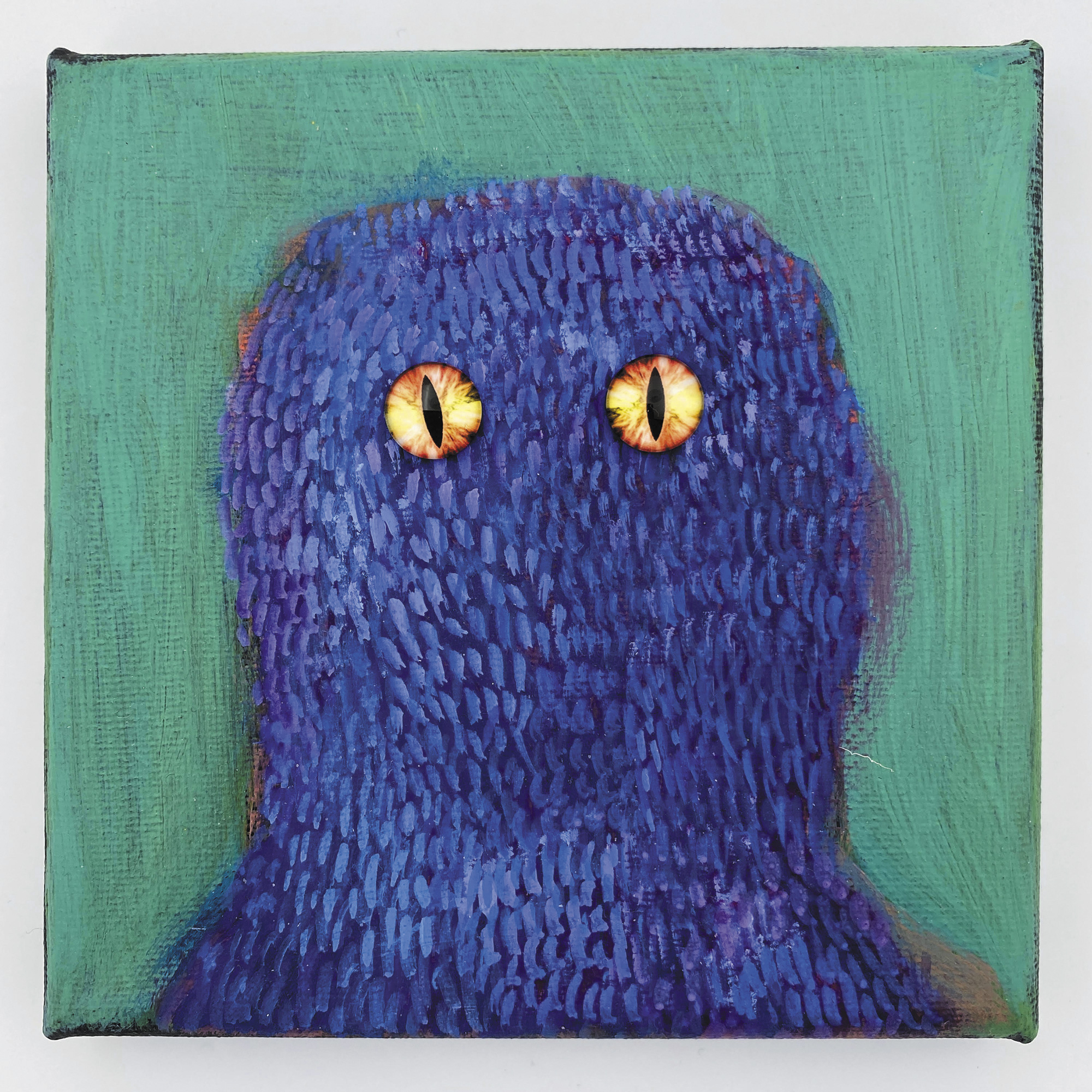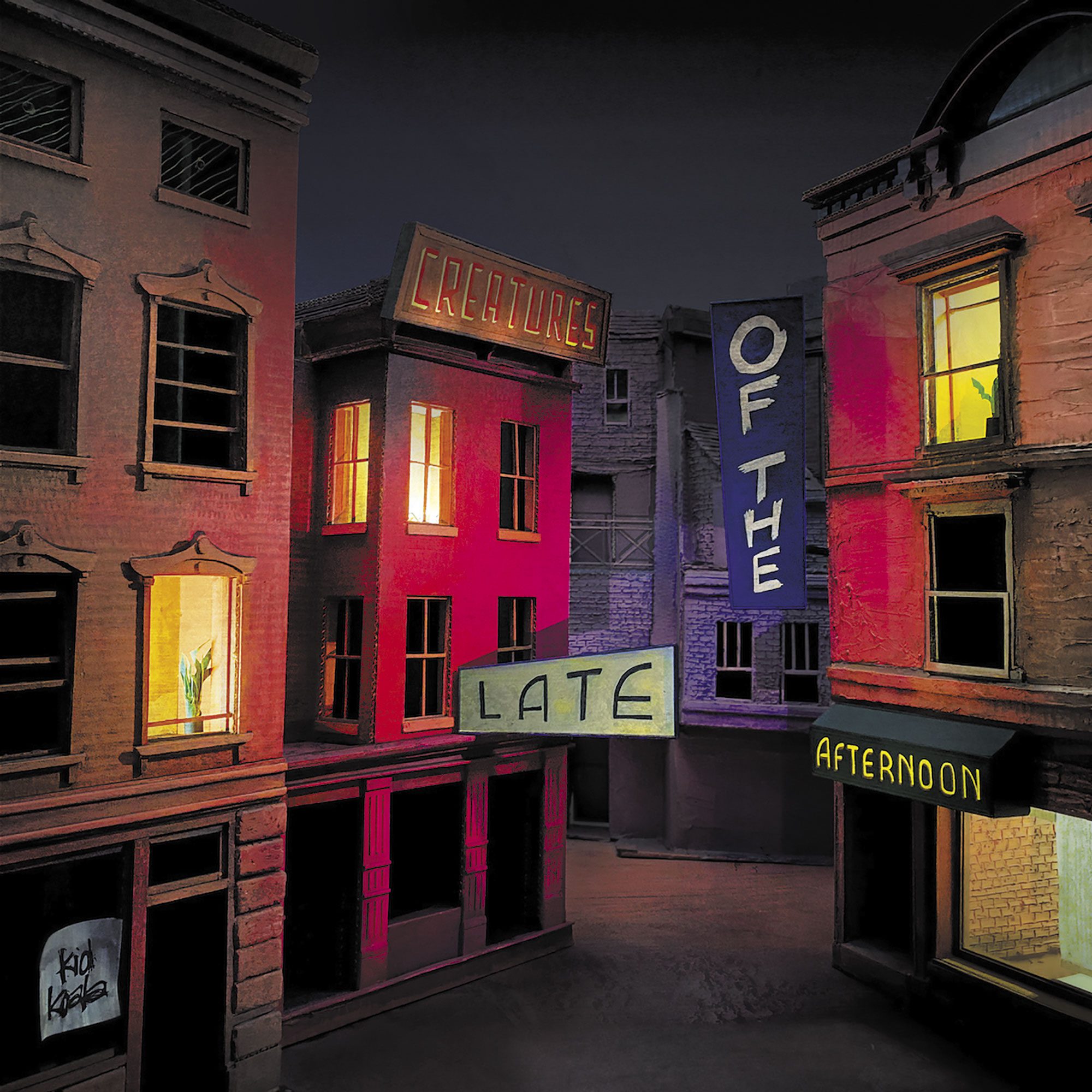
An Interview w/ Kid Koala, Part 1
By Jonny DeStefano & Krysti Joméi
Print Layout Design by Julianna Beckert
Art by Kid Koala
Iconic turntablist Kid Koala is a polymathic talent who transforms his life experience into art that connects people across the globe. His newest project, Creatures of the Late Afternoon, is a 2-LP record/full-on board game created in the midst of the pandemic. The album’s 20 tracks along with a hand-painted game gatefold cover and 150 cut-outable pieces is straight up groovy. But even more, Creatures serves as a reminder that even in the throes of it all, we’re in this together. We just need to tune in.
We had the honor to chat with Kid Koala while he was in Montreal in between board game events. This is part 2 of our conversation, continued from Issue 115:
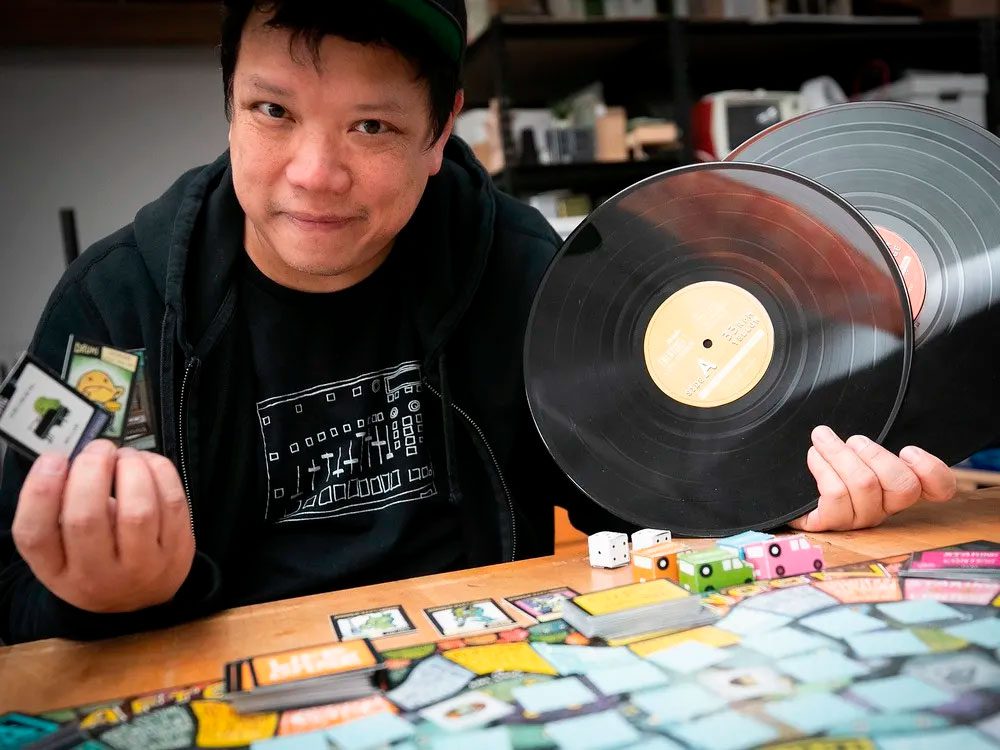
Kid Koala: If you think about it like a stovetop. There’s always three or four things cooking here at our workshop and in our studio. Which burner we focus on just depends on what the deadlines are mostly. But then at the same time, you know what you’re genuinely just inspired to work on at the moment.
Krysti Joméi: I love that. As artists, especially when creativity is your full-time job, it’s so easy to get stuck in the perfection loop. When you’re in that state of flow, that’s when it’s really meant to be. And that affects other aspects of your life because we’re not just creatives, we’re humans. We have mental struggles, emotions. I love the Emotion cards for the board game. We’re emotional creatures!
Kid Koala: Yeah! What’s a track without emotion? I’ve even heard 808 tracks that have emotion. You need it. Otherwise, it’s not worth listening to in my opinion. It doesn’t matter what music you make. If I can feel that human spirit behind it — it could be how intricately the drums are programmed or how much detail or choices the human made behind it — that’s what I’m responding to, what I’m searching for. Any kind of music or film, I don’t have to get it. I don’t have to be like, oh, that’s my bag. But if I can understand the passion that went into it and the focus that went into it … I think that’s the challenge too. Sometimes you just try to find that ability to enjoy a work.
Jonny DeStefano: I was looking at the backside of one of the new record sleeves and it shows your catalog. When you began to now you haven’t lost the soul or the style. Some artists, they kind of fade away, but you just keep on delivering the goods. Obviously, that’s not easy. But you just keep on going masterfully. Like Beethoven or Mothersbaugh.
Kid Koala: Thank you. I appreciate the positivity. People talk about authenticity or about all these things with what’s important to their art and I think for me, it’s just really letting life help you. I don’t fight where I am or how things are going. Let’s say, this hasn’t happened, but for example, I made a real super summer banger dance record and it just rocketed up the charts. I have no problem totally pulling the umbilical on that once winter comes around, make the opposite of that record. Not because business-wise that makes any sense, but because life-wise it makes sense. It’s more natural to me to just connect to whatever my actual experience is.
They say write what you know or write where you are. And this is where I am, in Montreal. You couldn’t get me to make anything over 80 BPM in the winter. It feels like you’re faking it. It’s so cold. There’s no birds chirping, they all flew south. People drive slower. Even the traffic noise is more muffled because there’s 4-foot snowbanks everywhere. You know how it is, right? I’m not saying that people have to live here to understand the records that I make in the winter. I’m just saying I actually feel there’s an energy that’s not here in the summer, that if I’m really tuned in then it will be the best use of my studio time in that season. Similarly, in the summer, I’m the opposite. I’m just trying to rock beats and scratch fast. I’ve never had a problem with just trying to be that.
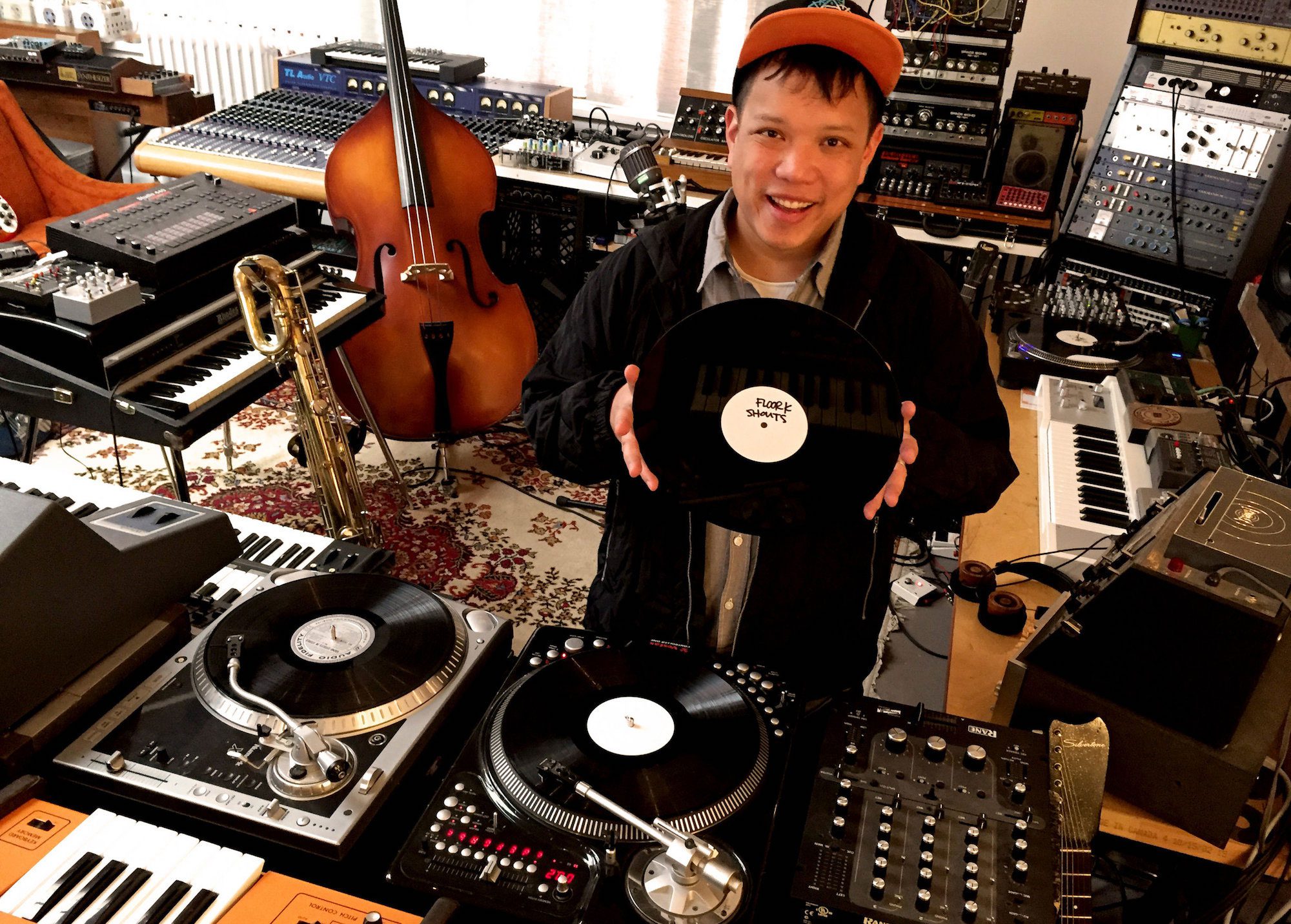
I guess underneath it all I don’t think of it as business or strategy moves, I just think about it as tapping into what’s around me and responding to it through the tools that I have and I guess that’s sort of a freedom that is very important to me. And I’ve turned left so many times. Some people have followed me for 20 years and other people are like, what? I don’t get it, I’m out. But it’s one of those things where I’m not really thinking about it in terms of a brand or anything. Essentially I want to do stuff that feels playful for me because that’s enjoyable. I always say if you’re not laughing every five minutes in rehearsals we’re doing something wrong. It’s not like everything just has to be haha jokes, but you need to be enjoying the process for the most part so that you don’t notice the time or you don’t beat yourself up over how much time you spend on something.
If I look at Creatures, I don’t even want to clock the hours on how long it took to paint and record everything. I might get depressed at that point, but it’s not about that. At the end, it was just what happened. That’s how I spent three years. And now what it does is it allows doors to open to have these new experiences, like a board game event, which wasn’t possible for me prior to that. And then the loop closes when people show up and I see them just laughing and having their Staring Contests and hearing them cheer and clap for each other in the game. That’s enough for me. It made it all worthwhile, man. Bringing people together and giving a space for them to enjoy each other’s company and have some sort of thing to do to connect.
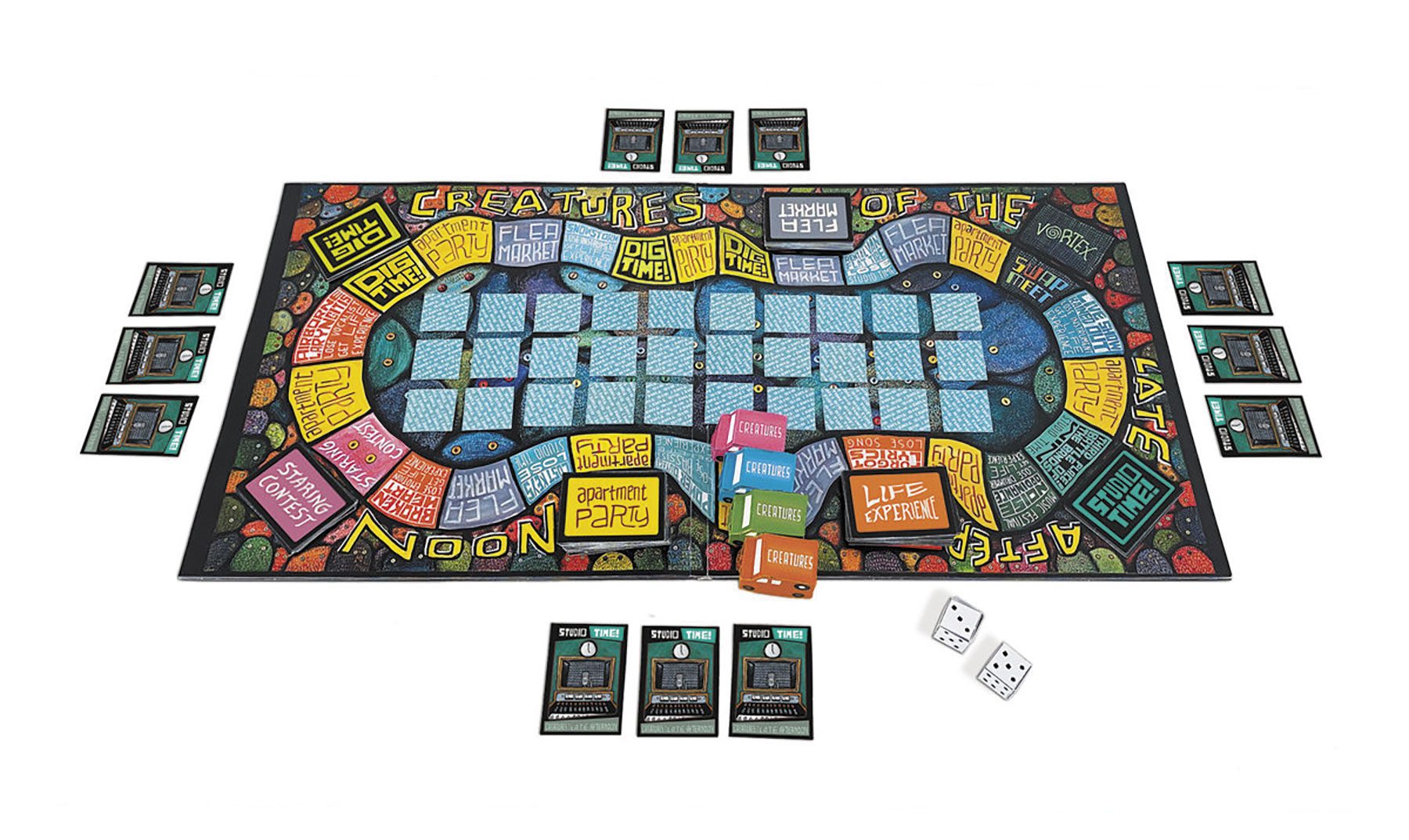
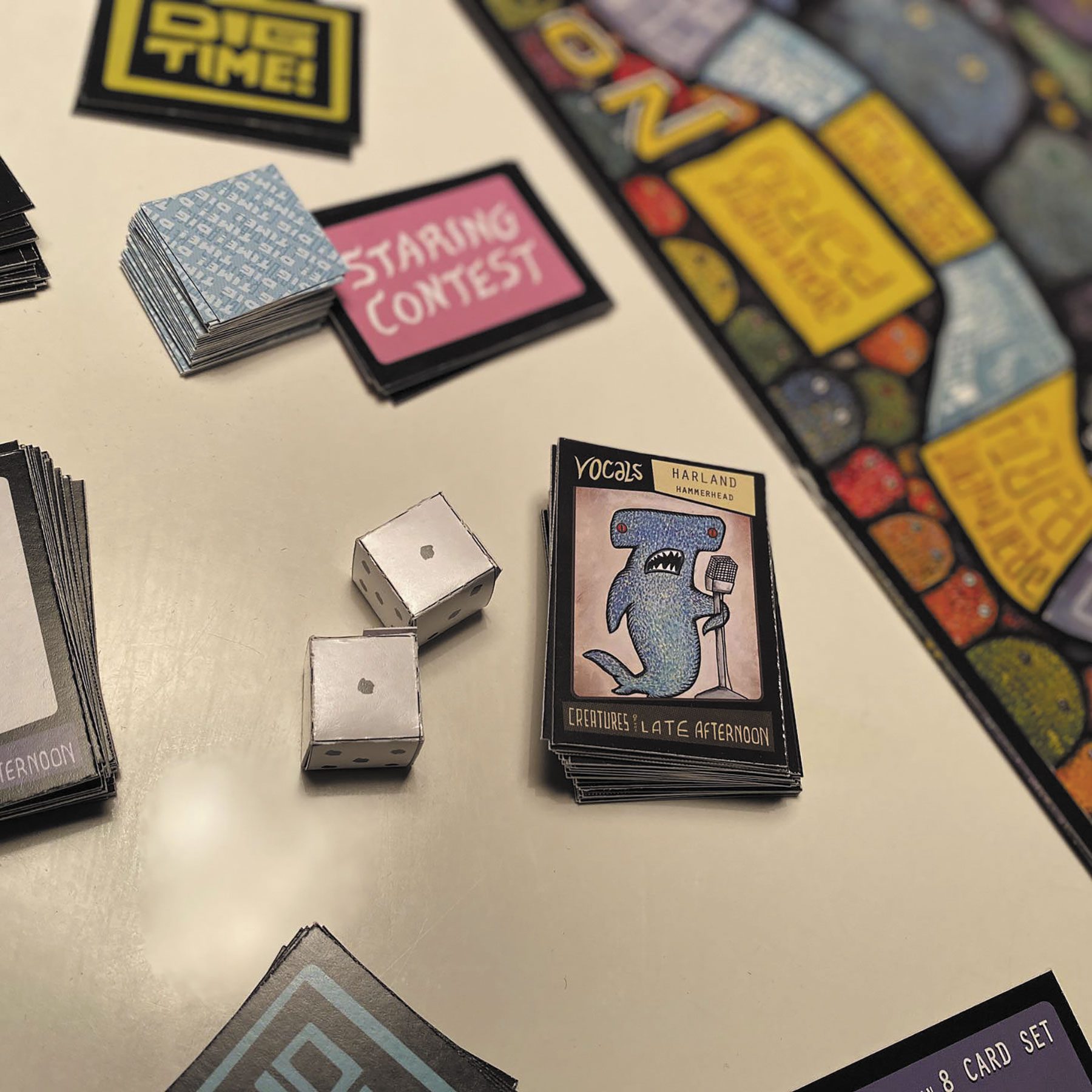
Jonny: You’re a good force for the world. You’re using your talents and rolling with the punches, and trying to keep things fun, while dealing with life.
Kid Koala: Art, for most artists I know, is like a therapy thing more than anything else. If I look at Space Cadet as a book, at the time I was going through a massive existential crisis, but not in a way that you would read into it explicitly in the book. We just lost a few members of our family, my grandma. And my daughter was actually on her way. That was like this duality. I was in between generations thinking about that. I was like how do you get that out? Well, it’s probably not a scratch turntable record I’m going to make. There was the book and then the score was right after Maple arrived. Her crib was right next to my piano and I didn’t want to wake her up. I remember just playing, sometimes I’d hold her in one hand, picking out notes or writing chord cycles with the other hand. They were all lullabies for her really. And that ended up being the score for the Space Cadet graphic novel, which people to this day have said, I used to play that for my child to help them go to sleep. And I’m like, that makes sense because I wrote a lot of that with a sleeping child right next to me. Even when it came to do the turntable parts I had headphones on because I didn’t want to wake her. I put little rubber stoppers on my faders so it wouldn’t make that snap-click metal-on-metal sound.
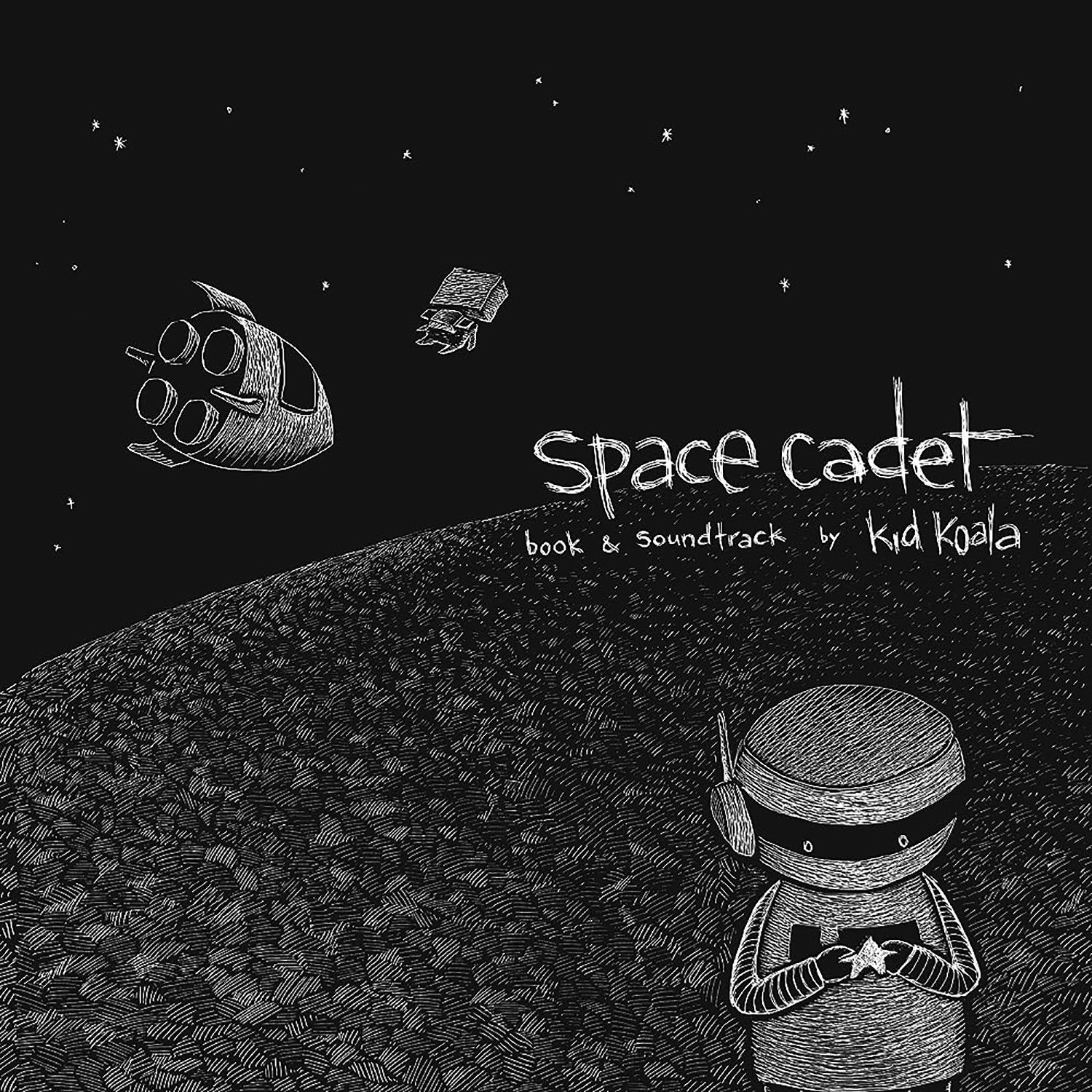
That’s an example of how life actually ended up affecting what I was making. And then embracing that fully when it came time to develop the show. I was like well, I made the whole record on headphones, let’s put the whole audience in headphones. Let’s make it comfortable. And we had inflatable space pods for everybody, and they’re just chilling, listening kind of in their own crib. And it was an experiment, but it worked. So I’m not afraid of where it’ll go, even if it doesn’t, even if it’s confusing at first. I always feel like a couple years down the line it starts to reveal why it had to be that way. The rest of the time, I’m just trying to read the roadmap and be like, yes, this is what it had to be. I wasn’t going to wake the baby. I wasn’t going to stop doing music or stop drawing. I just let it become a part of it.
Jonny: Like we were talking about with the game earlier, we love that how to make a Song, you kind of have to meet these requirements, which could be a heart break. You can’t get access to the genre if you don’t feel the pain. Tell us a little bit about how you thought about the game with all that.
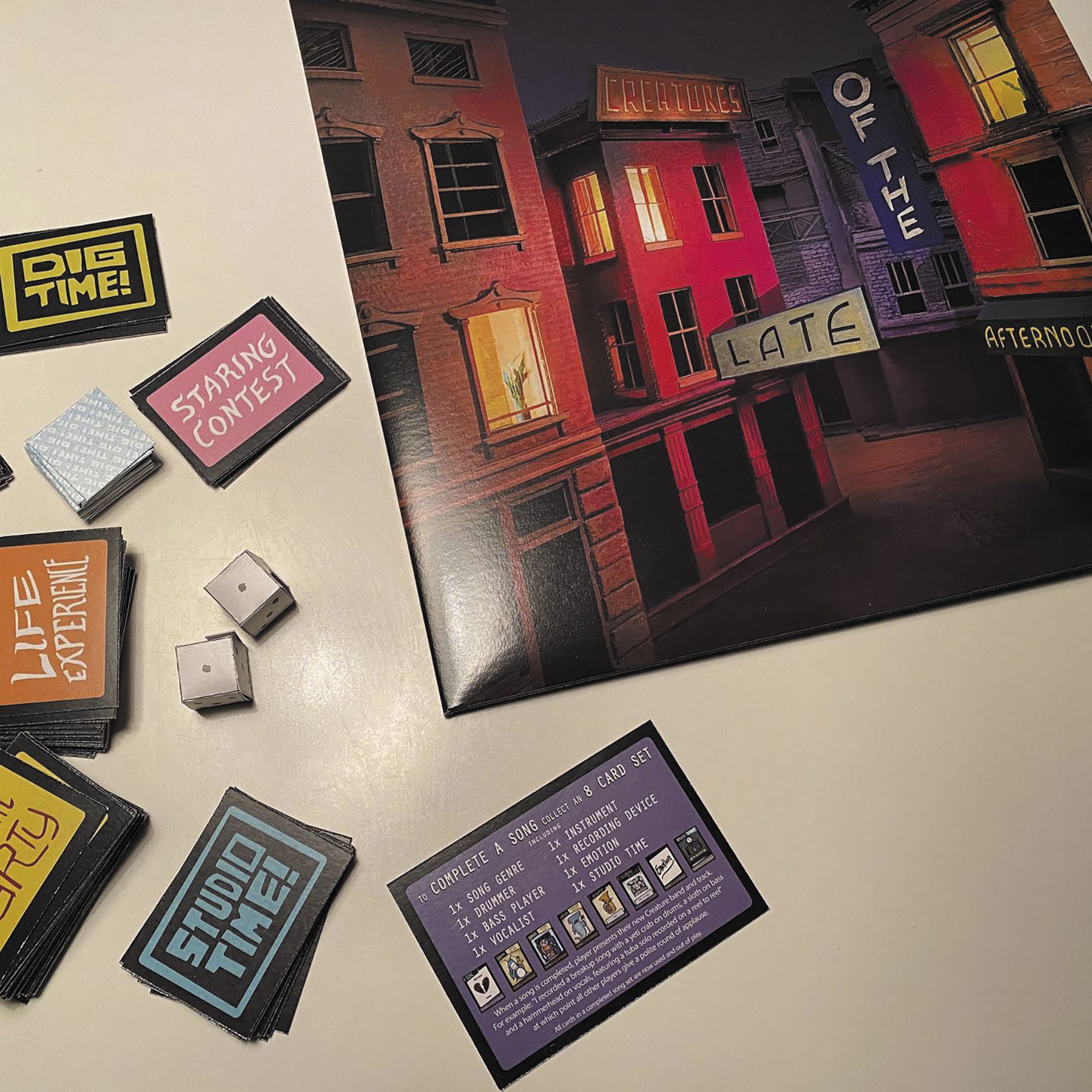
Kid Koala: Really, it’s kind of semi-autobiographical in terms of just my experience in the music industry. I wouldn’t say these are all-encompassing industry truths or anything, but I actually feel that there’s certain stars that need to align and time and energy, especially when you’re dealing with bands. For everybody to even just get in a room and rehearse is an effort.
I think with regards to what you’re talking about, there’s a deck called Life Experience cards and those you receive usually when you land on these kind of whammy spaces where some sort of hiccup happens along the way. Most of these have actually happened. Like there’s a Noise Ordinance space so you lose your Drummer, but then you gain Life Experience. I remember playing at a few festivals with these strict decibel ratings. It got to the point where, oh, well this is enough for a piano concert, but we have a whole band up here, so I don’t know what we’re going to play. Or we just turn the PA off and do acoustic. So all of those things that might happen along the way, like your touring van gets flat tire, we’ve had that happen. So you miss your gig, but then you gain life experience. You have a story to tell about it. So I’m trying to keep my eye not just mainly focused on the cloud, but actually the silver lining around it. Some things are out of your control, but then you’re going to gain life experience out of those things and that might inspire your next tune: your Breakup Song, your Workout Song, your Dance Song, Anthem, whatever it is.
My favorite stories from tour are always the worst gigs. The best gigs I love, don’t get me wrong, but the funniest stories always come from the worst-case. I remember this one time I was playing and the sound person didn’t speak English. It was in Italy and it was at this arts festival, and he saw that I was a DJ and thought I was just going to play disco dance stuff, but I was actually doing more routines. I had a booth and there’s a smoke machine and strobe lights. Two things that scratch DJs can’t stand. So I get on, I start chopping up two beats and then he’s blasting the smoke machine into the booth. Like, literally, I couldn’t see a foot in front of my face. And I said, please turn off the smoke machine. And he’s like, what? More smoke machine? No! Please, no. I just need the light to be static. And he’s like, what, more light?
My eyes start getting drier and drier. And then the next thing you know, my contact lens had dried out and had folded on the bottom part of my eyelid, and I was like, okay I really can’t see right now, but I’m in the middle of a routine. I’m just going to grab this contact and put it back in somehow discreetly. So I grab the contact, and it falls off of my finger, and it lands on the record that I’m playing. Then my contact lens is going around on the turntable, and it’s sort of close to the left of the needle, so it means the needle will eventually hit this contact lens and make a horrible loud noise. So then I’m trying to pick at it every time it goes around but I’m missing, and I’m catching air because there’s all this smoke. I have no depth perception because I only have one contact in. And then he’s hitting the strobe lights. So then you can see my contact just appearing and it’s there! No, it’s there! And it’s one of those moments where I’m like, oh, my god please make this stop. (laughing)
It was literally the worst gig. Technically, maybe not the worst, but it was one of those perfect examples. Such a bad time for me as a performer. But then I recounted, and it’s a pretty rich story. All the things that have to fall apart in that moment at the same time makes it really funny to me. So I think just having a sense of humor is very important in this game because, let’s face it. The music industry, and as is indie publishing, is precarious and so people who choose to do it just have that grit. And if you have that grit, then you’ll finish your song and you’ll get it out there. But ah, the adventures and the BS along the way is almost like part and parcel of it.
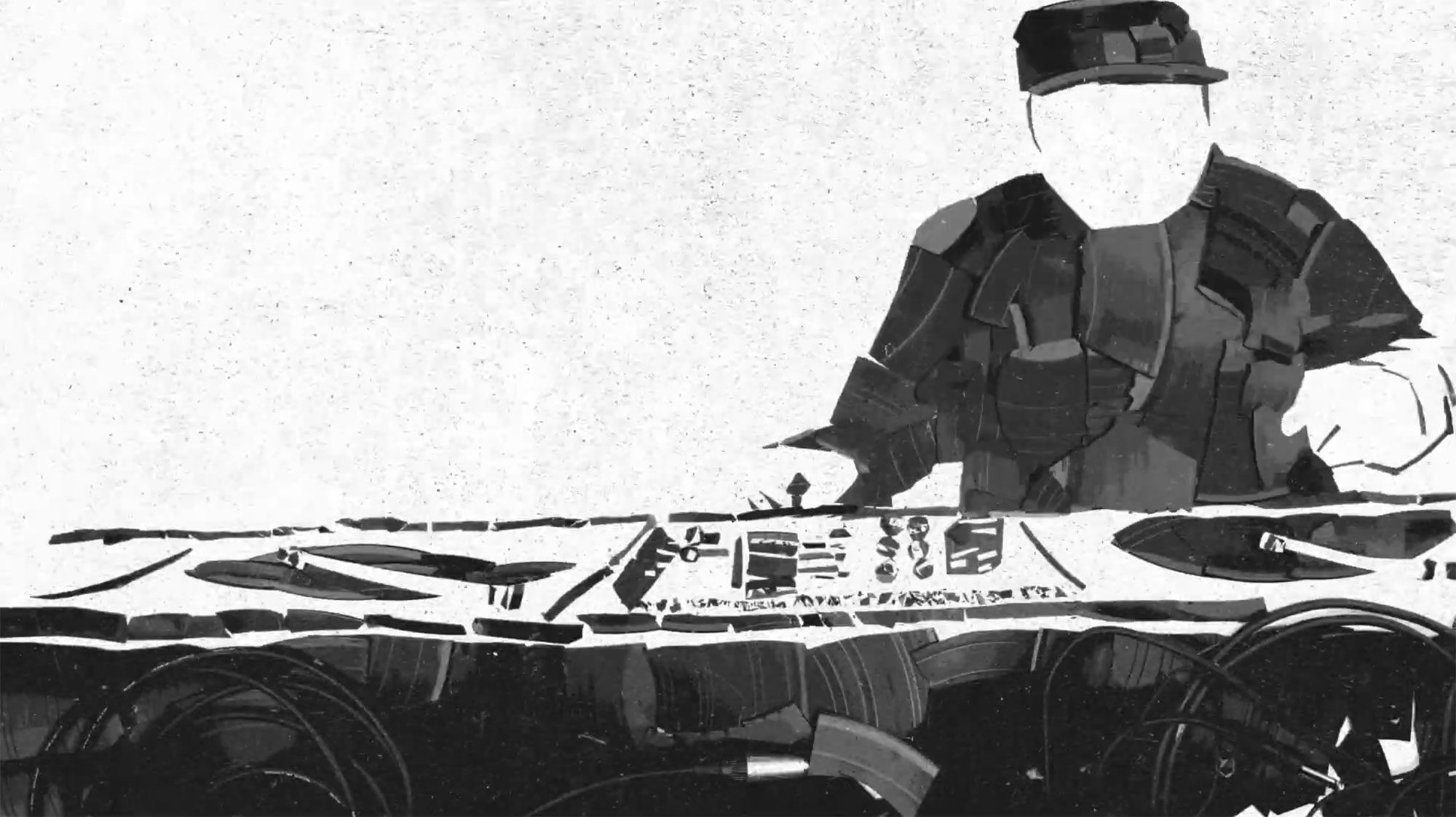
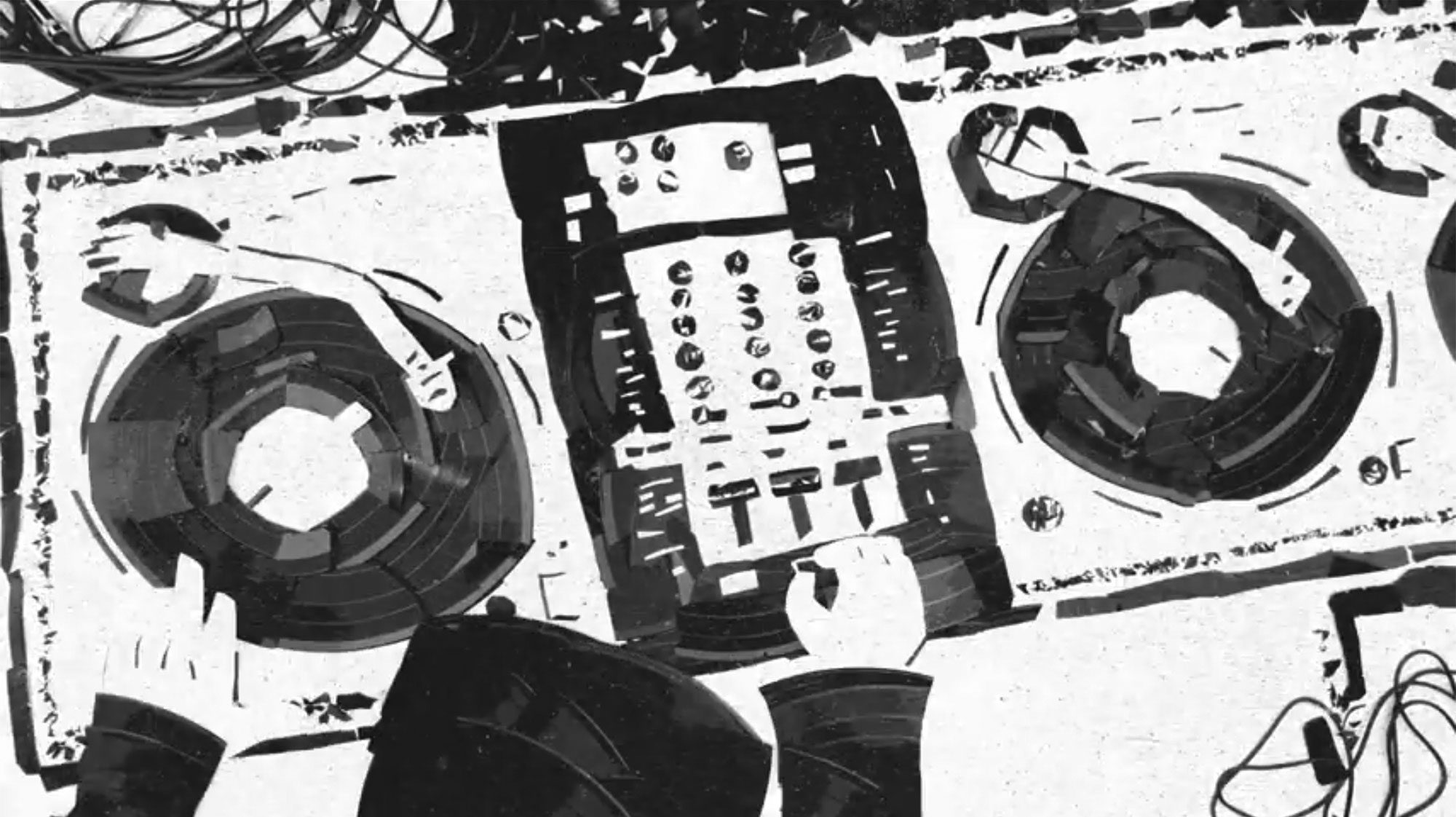
Jonny: Your sense of humor, the fun that you have comes out in the game. I mean, sure, you have your heartfelt stuff, obviously. But your sense of fun too is really palpable with everything you do.
Kid Koala: It makes the heavier stuff much more bearable. When I look at an album like Music To Draw To: Satellite, lyrically, it was inspired by a lot of things going through my head. But mainly, it was me processing my cousin’s suicide. I didn’t want to just make a record detailing what happened or being very explicit about it. It was just one way of me having to process that in a way that felt comfortable. And it did help because I was able to bring Emilíana [Torrini] on board. We were talking about this Mars mission at the time, when they were recruiting people to go to Mars and the caveat being you can’t come back, which I thought was essentially almost like, not a suicide mission, but you’re basically leaving everything behind forever.
So that’s quite interesting in terms of the idea of the people that are choosing to do that. We kind of used that as the gateway concept to write through these characters, to speak to the idea of somebody who wants to leave everything behind. And it really helped. It really was healing for me because, first of all, her voice is just such a comforting voice of an angel to begin with. But the idea of: I’m not over it, but it’s a thing where with given the tools that you have and the time that you have, can you iterate it somehow to just get things off your chest? And I knew it was, from a stylistic standpoint, totally left field. Wait aren’t you the scratch kid from Deltron? What are you doing? But making this ambient record is the record I had to make that. Otherwise, I wasn’t going to be able to go on and understand anything.
But even in that process if I think back to those sessions, Emilíana and I had a wonderful time together, just hanging out and laughing. But then when we made the music, it was just what came together, and I’m so thankful for that opportunity. Again, I didn’t really know while it was happening. I was just following that muse or that urgency, that weight that I have to do something to process this, and I need to just do it through music. That’s how I’ll normally try to get stuff out, as I have to. But it wasn’t until we were out touring it that I realized the impact that it had on some people. They were telling me, I’ve been listening to you since Carpal Tunnel Syndrome, but this album, and they’re holding up Satellite, and they share some stories. At that point, I was like, okay, this is why that had to happen. I just try to be a conduit somehow, like trying to put it into some form that some people can connect to.
And it happens to this day. Even when we do the [Satellite] Turntable Orchestra shows, there are people coming up to me after the shows and sharing their stories, similar situations, and I feel like it was time well spent. But again, it was life. It’s not pretty. But regardless, I think with my time here my job isn’t really to just put ugly stuff in the world. I don’t think I’m very good at that. I’m just trying to find a beautiful way to put it out there. You can be talking about the darkest things, but underneath it all that connectivity is still beautiful. Time, space, generation, family. Literally, we brought the show all over the world, and I’m hearing the same story everywhere. So I’m like this is not just unique to me, it’s happening on some kind of universal level. And I think that’s always a beautiful thing to focus on, how it connects.
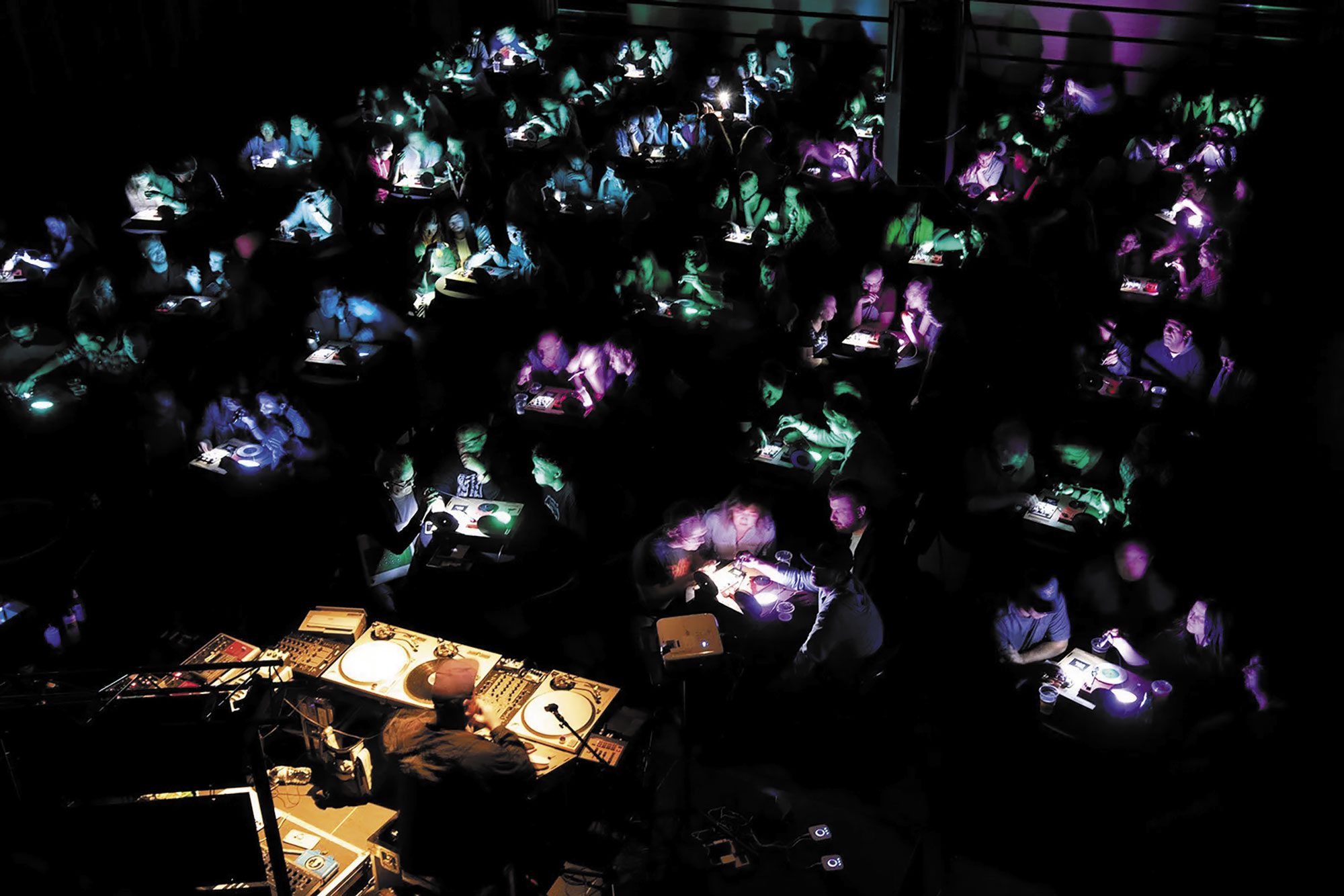
Krysti: That’s the beauty of being vulnerable and sharing your art. If you kept your story to yourself there’d be people out there who maybe wouldn’t heal or move on or grow or find their own life path. I got that immediately from this current record and the game and all the work that you’re doing. And it seems like it’s becoming more and more apparent as you go on in your career. You definitely exude bravery and love, even though I heard something where you say you’re an introvert …
Kid Koala: Functional introvert. (laughs)
Jonny: Well it’s been an incredible honor to talk to you.
Krysti: We made it 10 years with Birdy, and you’re part of it. Thanks so much. It’s really uplifting talking to you, it keeps our fire stoked.
Kid Koala: Keep doing it, honestly. I put you guys up there with Grand Royal, and you’re still doing it! Even the Beasties are tapped out. What you guys are doing, it’s important.
Jonny: Thank you so much. That’s such a compliment. We love Grand Royal. I remember Lee Scratch Perry on the front cover as a tribute to Wheaties [Cereal] and Bruce Lee battling Kareem Abdul-Jabbar.
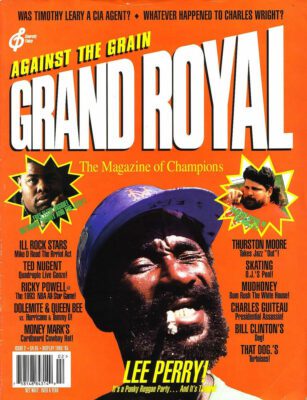
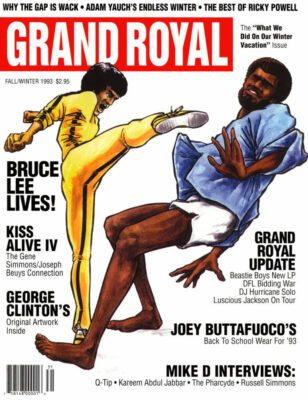
Kid Koala: That’s what I mean. They just wanted to write about stuff they wanted to write about. They exposed a lot of people to stuff that wouldn’t have been on their radar otherwise. Sharing stuff that you’re passionate about, especially in art.
Jonny: Yeah, some people say print is dead. And we’re like, no. Obviously we’ve got to interact with technology. But to us, just like vinyl, magazines still matter. As long as we’re tactile creatures on this planet. And we know we have to keep fighting to keep it going.
Kid Koala: That it exists is an act of rebellion. And a good one. Just the consistency of it. A lot of the stuff I do even takes decades before people really understand it. But you don’t stop. You just have to keep doing it, and like you said, focus on that and doing your best work with what you have and in my experience, it always does lead to opening new doors and new adventures. Keep doing it.
Krysti: Thanks again, Eric. This has been so much fun.
Kid Koala: For sure. Alright, take care. Huddle up. It sounds like quite the storm over there. It’s a good excuse to do some art.
Read Part 1 of this interview in case you missed it or snag a copy of Issue 115.
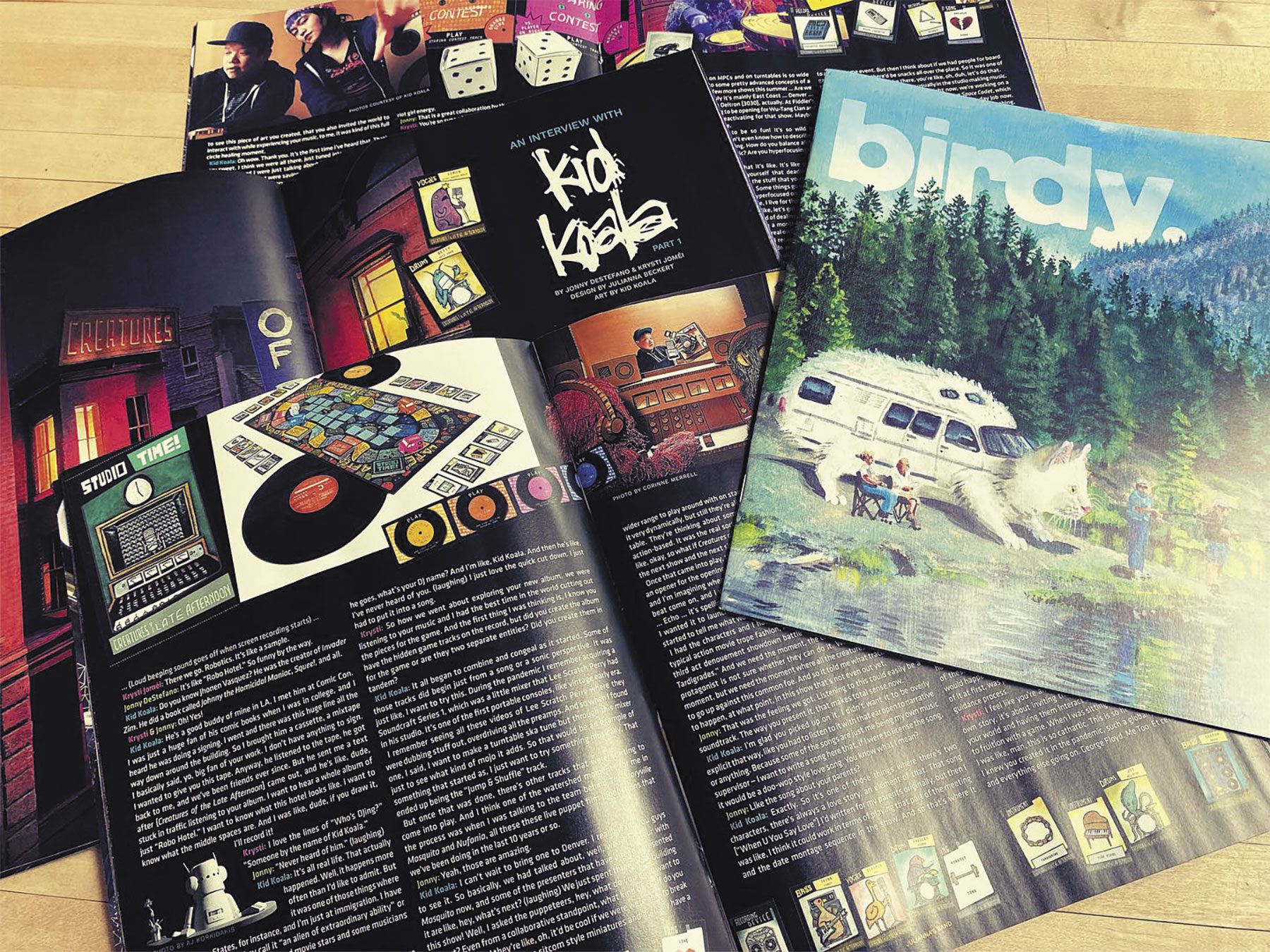
Creatures of the Late Afternoon is available for purchase here.
Snag tickets for Kid Koala’s 2023 Tour Dates >>> here
2023 Colorado Shows:
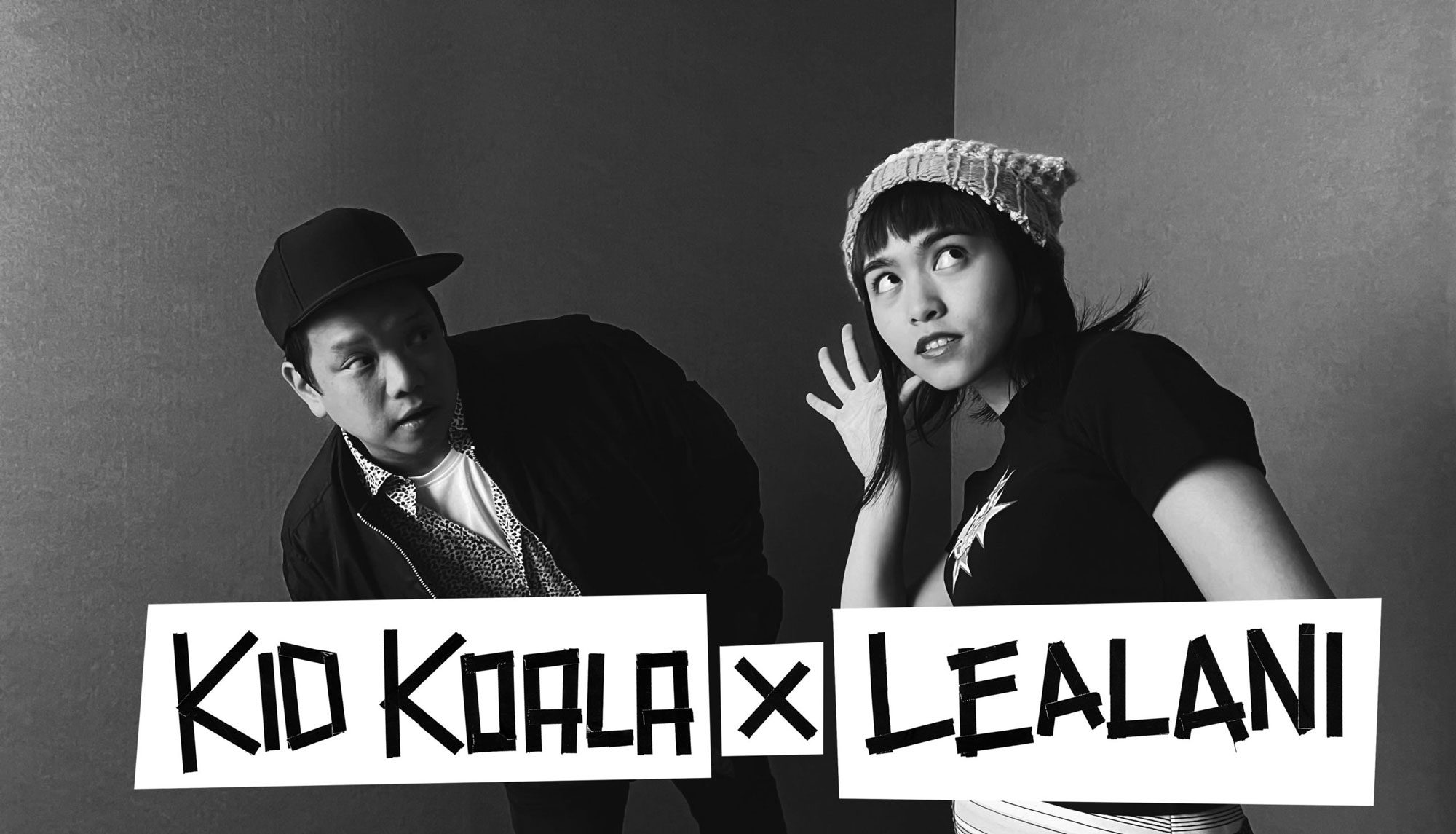
Friday, September 8th at Fidler’s Green Amphitheater — Kid Koala x Leanlani w/ Wu-Tang Clan, Run the Jewels & Deltron 3030
Saturday, September 9th at Dillion Amphitheater: — Kid Koala x Leanlani w/ Wu-Tang Clan & Deltron 3030
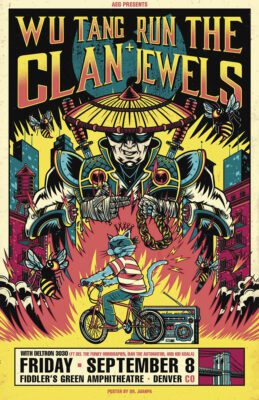
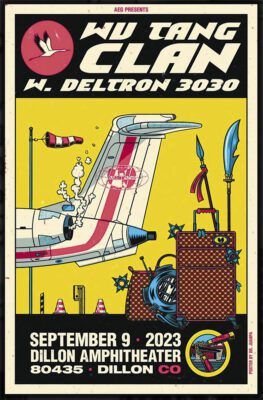
Head to our Explore section to see Kid Koala’s art published in Birdy issues past.
